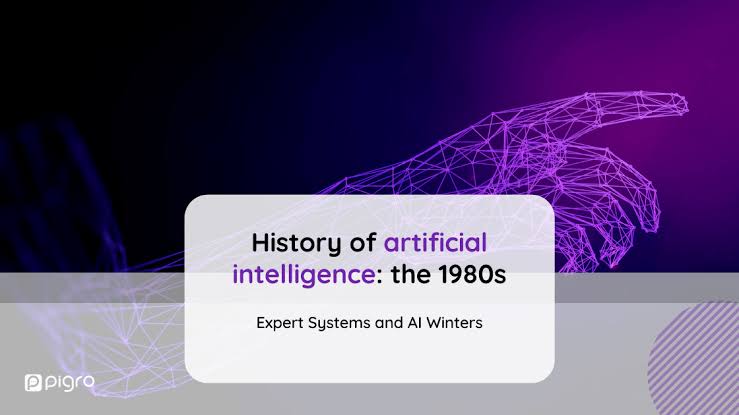Discover the origins, principles, applications, and legacy of expert systems in artificial intelligence (AI). Explore how these early AI systems revolutionized industries by emulating human expertise and decision-making capabilities, paving the way for advancements in machine learning and intelligent automation.
Expert Systems: The First Generation of Artificial Intelligence
Artificial Intelligence (AI) has undergone significant evolution since its inception, with expert systems marking an early milestone in the field's development. Expert systems represent a foundational approach to AI, designed to emulate the decision-making capabilities of human experts in specific domains. This exploration delves into the origins, principles, applications, and legacy of expert systems, highlighting their contributions to AI and their enduring impact on technology and industry.
Origins and Development of Expert Systems
Expert systems emerged in the 1970s as a response to the challenge of capturing and applying human expertise in computational form. Developed at institutions like Stanford University and MIT, these early AI systems aimed to replicate the problem-solving abilities of human experts by encoding their knowledge into a set of rules, heuristics, and inference mechanisms.
The architecture of expert systems typically consisted of two main components:
1. Knowledge Base: This component stores domain-specific knowledge acquired from human experts. It comprises facts, rules, and relationships structured in a way that allows the system to reason and make decisions based on the information provided.
2. Inference Engine: The inference engine processes information from the knowledge base, applying logical reasoning and inference rules to derive conclusions or make recommendations. It interprets user queries, accesses relevant knowledge, and generates responses or solutions based on the rules and algorithms implemented.
Principles and Operation of Expert Systems
The operation of expert systems revolves around the principles of knowledge representation, reasoning, and problem-solving:
Knowledge Representation: Expert systems use symbolic representation to encode domain knowledge into a format understandable by computers. This includes factual knowledge about the domain, rules for decision-making, and heuristics derived from expert insights.
Reasoning and Inference: The inference engine employs various reasoning mechanisms such as forward chaining (data-driven) or backward chaining (goal-driven) to deduce conclusions from available information. These processes simulate human reasoning by applying logical rules and evaluating hypotheses based on the knowledge stored in the system.
Problem-Solving and Decision-Making: Expert systems excel in tasks requiring complex problem-solving and decision-making capabilities within specific domains. By leveraging structured knowledge and inference mechanisms, they can diagnose faults, recommend treatments, predict outcomes, or provide expert-level advice tailored to user queries.
Applications and Impact of Expert Systems
Expert systems found applications across diverse domains, revolutionizing industries and professions:
1. Healthcare: In medical diagnostics, expert systems like MYCIN (developed at Stanford) demonstrated the capability to diagnose infectious diseases by analyzing symptoms and recommending appropriate treatments based on expert guidelines.
2. Finance and Business: Expert systems were employed in financial analysis, risk assessment, and investment advisory, where they could evaluate market conditions, recommend investment strategies, and predict financial trends based on historical data and economic models.
3. Engineering and Manufacturing: In engineering design and manufacturing, expert systems facilitated automated decision-making in process optimization, quality control, and equipment maintenance. They could troubleshoot faults, recommend adjustments, and improve efficiency in industrial operations.
4. Customer Support and Service: Expert systems were utilized in customer support environments to provide personalized assistance, troubleshoot technical issues, and offer product recommendations based on customer preferences and historical data.
Legacy and Challenges in Expert Systems Development
While expert systems showcased remarkable capabilities, their development posed several challenges and limitations:
Knowledge Acquisition: Acquiring and encoding expert knowledge into a formalized format was a labor-intensive process requiring extensive collaboration with domain experts. Maintaining and updating the knowledge base as domains evolved also posed ongoing challenges.
Scalability and Flexibility: Expert systems were often rigid and struggled to adapt to new or unforeseen situations outside their predefined rules and knowledge base. They lacked the learning capabilities and adaptability of modern machine learning systems.
Integration with Other Technologies: Integrating expert systems with other AI techniques, data analytics, and real-time data sources was often complex and required specialized expertise in knowledge engineering and system integration.
Legacy and Impact on AI Development
Despite their limitations, expert systems laid the groundwork for subsequent advancements in AI, including:
1. Machine Learning and Neural Networks: Expert systems inspired the development of machine learning algorithms and neural networks, which excel in learning from data and making predictions without explicit programming of rules.
2. Decision Support Systems: The principles of knowledge representation and reasoning from expert systems influenced the design of decision support systems (DSS), which assist human decision-makers by providing relevant information and insights.
3. Intelligent Agents and Robotics: Concepts from expert systems, such as knowledge-based reasoning and problem-solving, are integral to intelligent agents and autonomous systems in robotics, enabling them to perform tasks independently in dynamic environments.
Conclusion
In conclusion, expert systems represent a pivotal chapter in the history of artificial intelligence, showcasing early attempts to capture and utilize human expertise in computational form. These systems demonstrated the potential of AI to emulate human reasoning and decision-making within specific domains, paving the way for advancements in machine learning, robotics, and decision support systems. While their practical applications were limited by technological constraints and the complexity of knowledge acquisition, the legacy of expert systems continues to influence the development of AI technologies today, driving innovation across industries and expanding the frontiers of intelligent automation.
